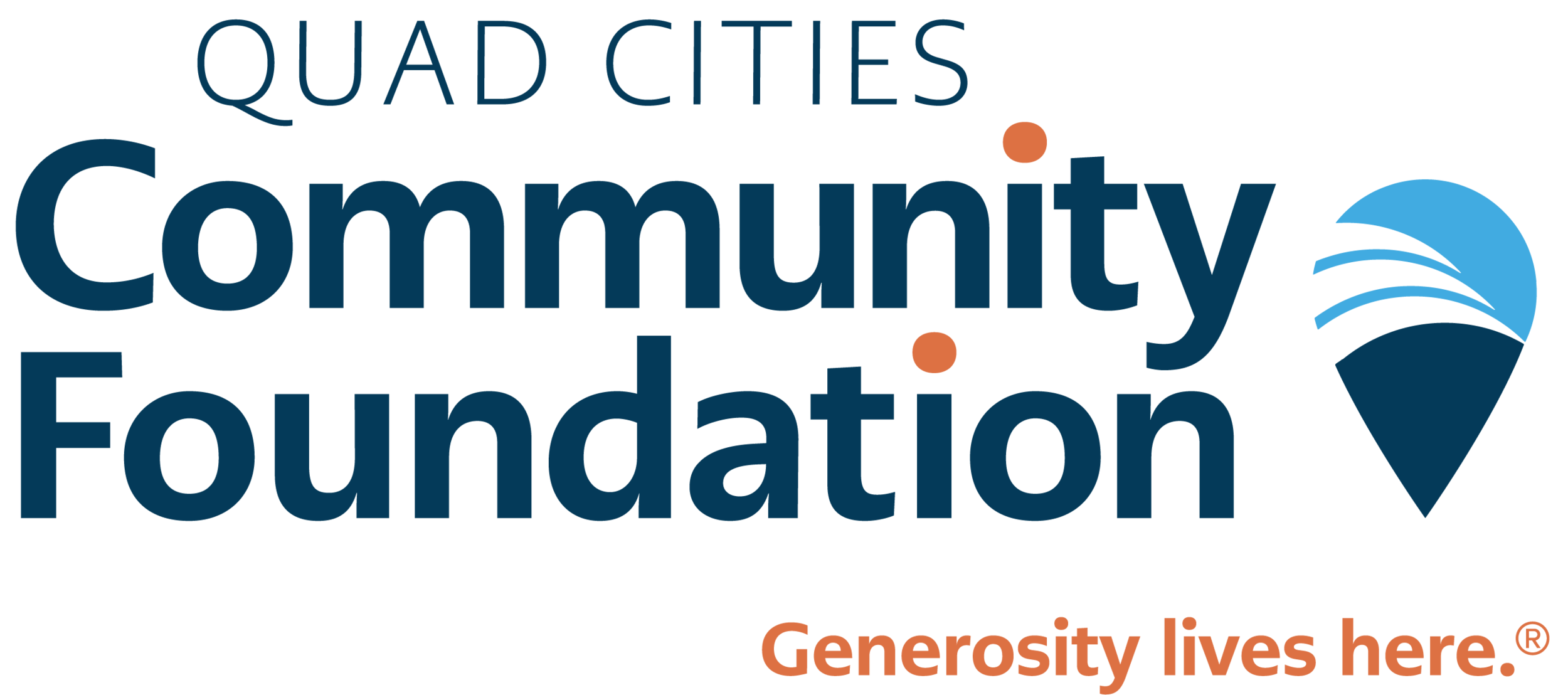Taking a broader view: A Q&A with intern Emily Cummings
When it comes to community change, Emily Cummings knows that today’s youth are tomorrow’s leaders. A passion for uplifting the next generation led her first to a bachelor’s degree in early childhood education administration and then to jobs at local nonprofits, including Two Rivers YMCA and the Child Abuse Council, where she currently manages a program providing child therapy services. A mother of three, she was recently appointed by Moline mayor Sangeetha Rayapati to the city’s Youth Commission.
Emily herself is still learning. As she finishes up her master’s degree in social work at the University of Iowa, she joins the Quad Cities Community Foundation for a nine-month internship. In the Q&A below, she shares her insights on the experience so far.
How did you get involved with the Community Foundation?
I love everything about my community. And I love looking at how we can make the Quad Cities a better place, which really fits well with what I wanted out of this internship.
A lot of people, when they think of social work, think of a more micro-level practice of therapy. But my interest is really integrated practice, which is an area of meso- and macro-level change through social work values. That’s what led me here: I wanted to look at systems change, and I wanted to learn how the Community Foundation works in our community to make a bigger impact, especially for vulnerable populations.
What I’m really trying to do is shift my lens. My passion has always been early childhood, but with this experience I’m hoping to broaden my focus to understand how other organizations play a role in impacting our Quad Cities region for all our community members.
What projects are you working on as an intern?
I’m participating in two main projects, which are evaluations for two of our grant programs. We’re looking back at the projects we’ve funded to determine how this funding impacted the organizations that received it. What is the long-lasting impact of the grants we make?
We want to look historically at grants written and understand, if they were accepted, how did it pan out? If not, then what happened next? And I would love to create an evaluation tool that the Community Foundation can use in the future, something easy they can look at to measure success.
What are you learning so far?
I’m learning a lot! This past month I’ve met with the leaders of the different teams, and what I’ve found is that they all communicate so well to connect donors to the causes that are meaningful to them and to make the community better. I already have an understanding of nonprofits and grantwriting, but donor relations is an important aspect of the Community Foundation, too.
One of the other areas I’d like to focus on that the Community Foundation is looking at more closely is bringing a diversity, equity, and inclusion lens to what they’re doing. That piece is really important to me and something I’m eager to dive in and learn more about.
In my experience with the Community Foundation in the past and now, they’re very responsive to community needs and are always trying to gauge the temperature of where we’re at in our community. I’m interested in how we see problems and how we make them better—for organizations and the people they serve. How do we find those win-wins?
The Community Foundation’s mission is to transform the region through the generosity of donors. How have you seen that in action?
The Community Foundation lives out their values. Everyone is so generous and so kind to one another. I think the internal culture impacts the work they can do externally, making it even better and more generous.
I think people don’t necessarily realize all they themselves have to offer the community. One of the things the Community Foundation is really good at is connecting people to work that’s close to their heart. You may not think you have much to give, but the Community Foundation is good at exploring how they can plug your heart’s work into something that will truly leave a legacy for the community.


